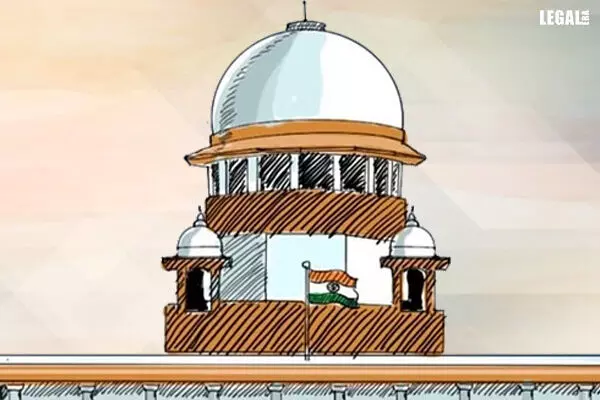- Home
- News
- Articles+
- Aerospace
- Agriculture
- Alternate Dispute Resolution
- Banking and Finance
- Bankruptcy
- Book Review
- Bribery & Corruption
- Commercial Litigation
- Competition Law
- Conference Reports
- Consumer Products
- Contract
- Corporate Governance
- Corporate Law
- Covid-19
- Cryptocurrency
- Cybersecurity
- Data Protection
- Defence
- Digital Economy
- E-commerce
- Employment Law
- Energy and Natural Resources
- Entertainment and Sports Law
- Environmental Law
- FDI
- Food and Beverage
- Health Care
- IBC Diaries
- Insurance Law
- Intellectual Property
- International Law
- Know the Law
- Labour Laws
- Litigation
- Litigation Funding
- Manufacturing
- Mergers & Acquisitions
- NFTs
- Privacy
- Private Equity
- Project Finance
- Real Estate
- Risk and Compliance
- Technology Media and Telecom
- Tributes
- Zoom In
- Take On Board
- In Focus
- Law & Policy and Regulation
- IP & Tech Era
- Viewpoint
- Arbitration & Mediation
- Tax
- Student Corner
- AI
- ESG
- Gaming
- Inclusion & Diversity
- Law Firms
- In-House
- Rankings
- E-Magazine
- Legal Era TV
- Events
- News
- Articles
- Aerospace
- Agriculture
- Alternate Dispute Resolution
- Banking and Finance
- Bankruptcy
- Book Review
- Bribery & Corruption
- Commercial Litigation
- Competition Law
- Conference Reports
- Consumer Products
- Contract
- Corporate Governance
- Corporate Law
- Covid-19
- Cryptocurrency
- Cybersecurity
- Data Protection
- Defence
- Digital Economy
- E-commerce
- Employment Law
- Energy and Natural Resources
- Entertainment and Sports Law
- Environmental Law
- FDI
- Food and Beverage
- Health Care
- IBC Diaries
- Insurance Law
- Intellectual Property
- International Law
- Know the Law
- Labour Laws
- Litigation
- Litigation Funding
- Manufacturing
- Mergers & Acquisitions
- NFTs
- Privacy
- Private Equity
- Project Finance
- Real Estate
- Risk and Compliance
- Technology Media and Telecom
- Tributes
- Zoom In
- Take On Board
- In Focus
- Law & Policy and Regulation
- IP & Tech Era
- Viewpoint
- Arbitration & Mediation
- Tax
- Student Corner
- AI
- ESG
- Gaming
- Inclusion & Diversity
- Law Firms
- In-House
- Rankings
- E-Magazine
- Legal Era TV
- Events
Supreme Court Upholds Compensation in Fatal Work Incident Appeal

Supreme Court Upholds Compensation in Fatal Work Incident Appeal
The Supreme Court has specified that it will only entertain an appeal against a decision issued by the Workmen's Compensation Commissioner if there is a significant legal question that warrants examination.
The Apex Court bench consisting of Justices Abhay S. Oka and Sanjay Karol observed in no uncertain terms that the Workmen's Compensation Commissioner serves as the final authority when it comes to determining factual matters.
In this particular case, the High Court of Gujarat, situated in Ahmedabad, overturned the decision of the Commissioner for Workmen Compensation Act, Bhuj (Kutch) in Gujarat. The Commissioner had initially awarded compensation to the legal representatives of a deceased employee. The employee tragically lost his life while in the course of his duties as a driver, specifically while securing logs onto a trailer. During this process, one of the logs fell and caused injuries to his left leg, ultimately resulting in his death.
The Commissioner had directed the Insurance Company to pay compensation of ₹3,94,120. However, the High Court reviewed this decision and determined that the deceased employee was neither actively employed by the employer at the time of the incident nor on the date when the incident occurred. Consequently, the High Court concluded that the injuries leading to the employee's demise were not work-related, and thus, set aside the compensation order.
In an appeal filed by the mother and wife of the deceased employee before the Supreme Court, the Bench besides stating that an appeal against a Commissioner's order can only be entertained if there is a substantial legal question that warrants consideration also pointed out that the judgment being challenged did not, in any way, indicate that the Commissioner's findings were flawed or perverse.
The Court emphasised that the conclusions reached by the Commissioner were deemed to be "a possible view." This determination effectively ruled out any possibility of finding perversity in the Commissioner's findings.
Taking into account the accumulation of circumstances, including the clear indication of the deceased's employment with the employer company, the legislation's core intent of promoting social welfare and protecting employee rights, the Commissioner's authoritative role in determining factual matters, the constrained scope of appeal restricted to substantial legal questions, and the absence of any apparent perversity in the Commissioner's order, the court decided to set aside the order passed in the First Appeal, thereby allowing the appeal.



